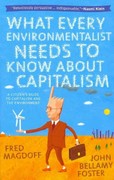assess whether complete nationalisation of the rail industry might protect employees
The UK Rail Industry Figure 1: UK government subsidy to Northern, a train operating company in Northern England 290 - 287.9 285 f millions 280 275 - 277.0 2017 2018 (Source adapted from: https://www.theyworkforyou.com/wrans/?id=2018-10-18.181280.h) Figure 2: Rail passenger kilometres travelled per year in the UK, billions 70 65 billion 60 (2018) 50 40 Passenger kilometres (billions) 30 20 10 1985 1995 2005 2015 (Source adapted from: fullfact.org)Extract B Southern Rail boss paid $495 000 The Chief Executive of Southern Rail, the private-sector train operator that has become associated with delays, losses, cancellations and strikes, was paid $495 000 last year. This increased calls for nationalisation and a maximum wage for executives at companies with government contracts. In contrast the average base pay for a train driver in the UK is 5 E47 705, although they can earn up to $63 000. Nearly a third of Southern Rail trains were late in 2016 as it tried to deal with a labour dispute that involved extensive strike action. The rail trade unions are opposed to planned changes to the role of train guards, which they claim will put passenger safety at risk. 10 (Source adapted from: Rob Davies, The Guardian 10 April 2017 https://www.theguardian.com/business/2017/apr/10/southern-rail-boss-double-pay-rise)Figure 3: Price of a single off-peak train journey, Edinburgh to Leeds Saturday 22nd December 2018 19:00 hours Adult Young Persons (16-25) Railcard E105.30 E69.50 (Source: https://www.Iner.co.uk/buy-tickets/booking-engine) Extract A The case for nationalisation Privatisation has not made the rail industry cheaper to operate, despite the promise from one government source that it would see private companies bringing: "more competition, greater efficiency and a wider choice of services". One reason, suggest the critics, is fragmentation. Instead of pushing British Rail into the private sector as a single supplier the government chose to break it into three components of track, train operators and rolling stock i.e. the trains and carriages. This has encouraged each part of the rail industry to prioritise its own profits rather than collaborating to improve the system. Privatisation, meanwhile, never really worked. The rail network of 2500 stations and 10 32 000 km of tracks was renationalised in 2001. This has encouraged the government's transport secretary, a supporter of private sector involvement, to argue that the state Network Rail monopoly should be removed so that companies can bid to build new rail lines to upgrade the railway. The privately-owned train operators are now the subject of fierce criticism, due to 15 overcrowding and cancelled services. Private companies are supposed to compete to win a bid to be the train operator for a region for a short number of years. However in recent years the number of private companies bidding or renewing their contract as rail operators has fallen. In May 2018 the government rescued the East Coast line by renationalising it. The line had been run by the private rail operator Virgin Rail, which was 20 suffering lower passenger numbers and revenue than forecast. Some argue that there is a simple solution: reunite track and train in the only feasible manner, nationalisation. (Source adapted from: https://www.ft.com/content/d82848ca-f7ba-1 1e7-88f7-5465a6cela00)









